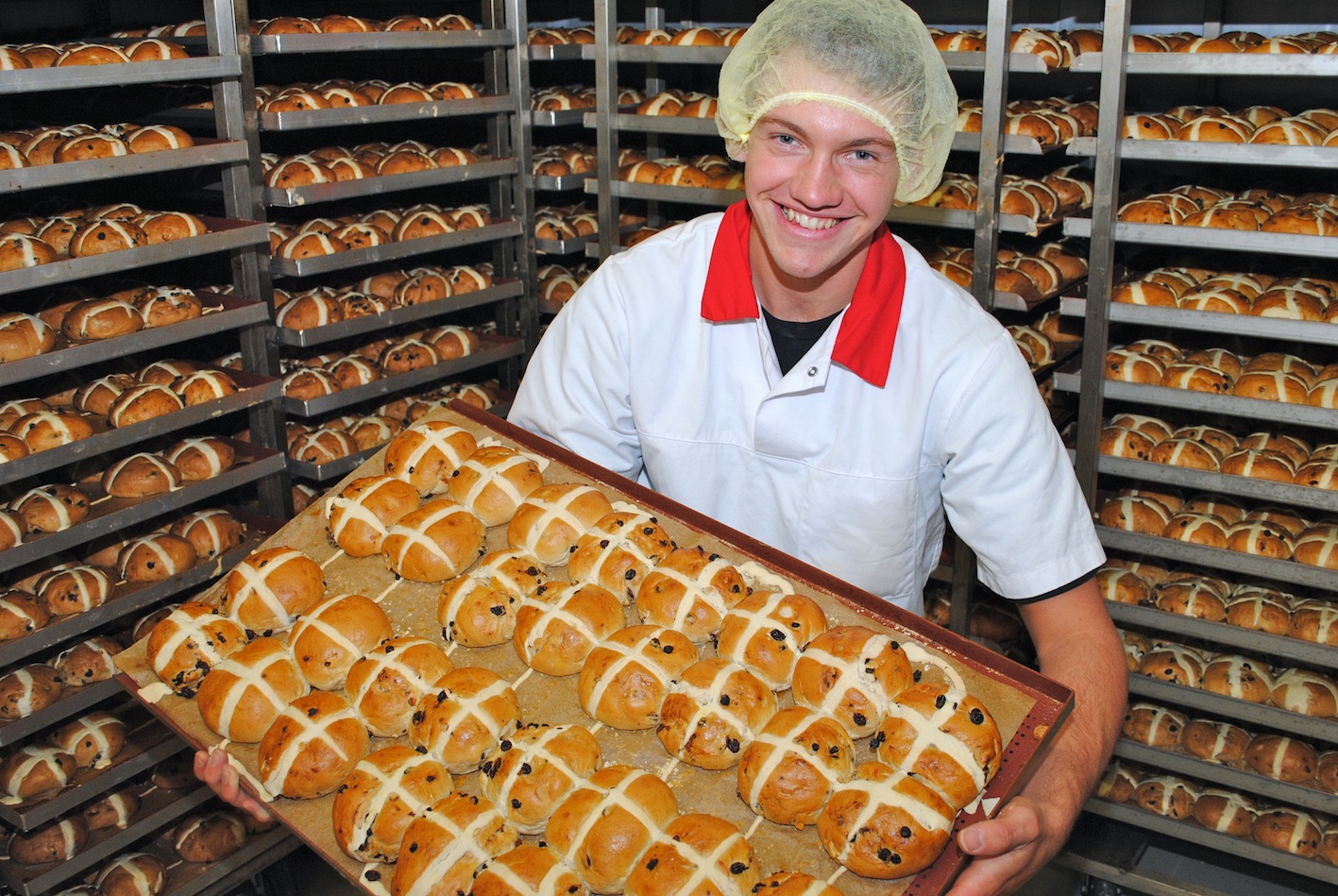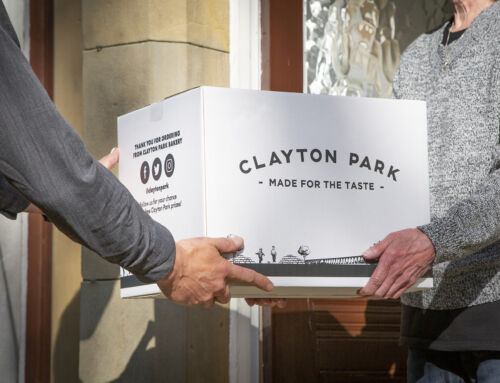Bakers at an East Lancashire bakery will be ready for a well-earned rest this Easter after sales of Hot Cross Buns reached record levels.
More than 100,000 packs of the traditional Easter treat have rolled off the production line at Clayton Park Bakery – which is more than double last year’s bake.
Ovens at Clayton Park’s newly opened second unit in Huncoat have been busy since January baking the spiced classic and with Easter landing a little later in the calendar this year, sales of hot cross buns have had plenty of time to rise.
General Manager Brian Ashworth said: “The demand for the traditional Hot Cross Bun builds year on year. It’s almost at a point where we’re thinking about baking them all year round.
“In fact, they’re proving so popular we’re also thinking of expanding the range for next year, with a few twists on the traditional recipe.
“Some of the supermarkets have started to produce flavoured buns – chocolate, orange and cranberry, apple and cinnamon – and it’s something we might consider too.”
Smartly dressed in the bakery’s new ‘heritage’ packaging, each one of Clayton Park’s Hot Cross Buns has its trademark ‘cross’ piped on by hand, which means every single bun, out of the 400,000 produced, is completely unique.
Brian added: “I think the new packaging has certainly helped to boost sales, and the fact we’ve now got a second bakery means we’ve got the capacity to cope with the extra demand.”
Craft bakers Clayton Park supply a range of pies, cakes and savouries to football clubs, Booths, Spar and hundreds of small shops across the north of England.
Hot Cross Bun Fun Facts
1. A traditional Easter treat, the hot cross bun is thought to pre-date Christianity. During the Pagan festival of Eastre, in which they celebrated the goddess of the dawn Eostre (associated with spring), the Saxons prepared and ate buns marked with a cross – possibly denoting the four quarters of the moon.
2. Due to their Pagan heritage the Christian Church attempted to ban the buns but they proved too popular and so were adopted into Christian tradition as a symbol of the crucifixion.
3. According to English Folklore the hot cross buns baked on Good Friday have medicinal qualities and give a whole new meaning to ‘long life’. Hung in the kitchens of superstitious folk for the following year, the Good Friday Buns were thought to never go mouldy. They would protect against fires, ensure perfect bakes and could be grated to be used as a cure-all remedy.
4. Aware of the religious symbolism of the hot cross bun, Elizabeth I was thought to have issued a decree making it illegal for the spiced buns to be sold at any other time than at funerals, Easter and Christmas.
5. The Oxford English Dictionary’s first reference to hot cross buns is in 1733 in the form of a ditty: – “Good Friday comes this Month, the old woman runs, With one or two a Penny hot cross Bunns.”





